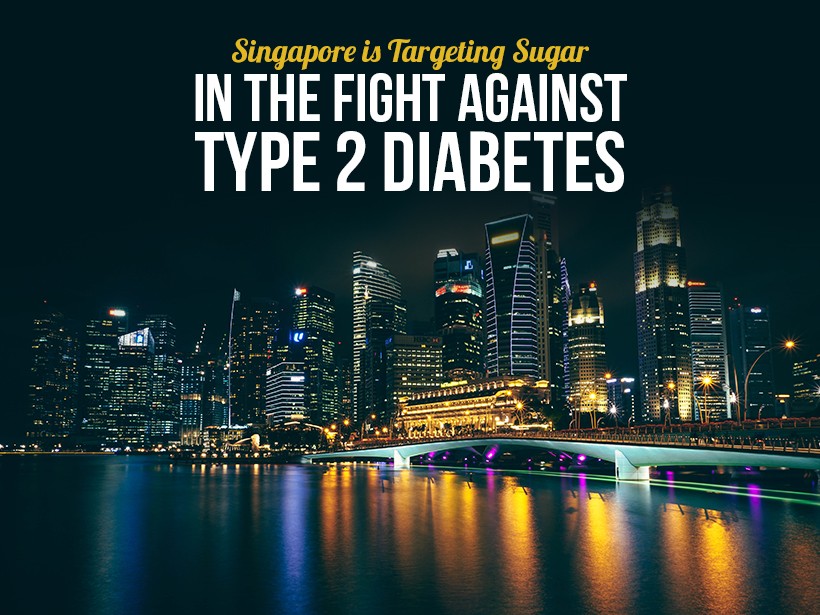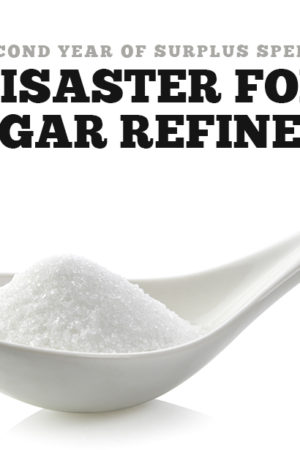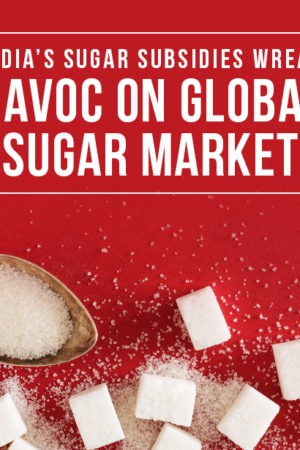It has often been debated among scientists whether or not sugar has a direct link to type 2 diabetes. Studies over the past several years have confirmed, however, that sugar is not only indirectly culpable (in its presence in the oversized diets that themselves cause the disease), but has also an independent link to type 2.1 A variety of taxes and regulations have indeed been tentatively introduced in countries around the world, as governments recognize sugar’s role in the global obesity epidemic. In recent months, however, the Singaporean government has been developing a progressive new anti-sugar agenda specifically in order to stay its growing population of type 2 diabetics.
Singapore's “War on Diabetes”
Singapore has the second highest per capita rate of diabetes in the developed world, with one in nine residents afflicted.2 In a country notorious for its strict regulations, it makes sense that sugar should become the target of an emerging government campaign.
On its website, under the headline “Diabetes: the War Continues,” the Singapore Ministry of Health outlines its plans to target sugar, beginning with its success in getting several major soda companies to start lowering the sugar content in their drinks.3 The government is also planning to incorporate sugar as a category in its “Healthier Ingredients Development Scheme” (HIDS), which would result in subsidies for food manufacturers who find healthy alternative products to those high in sugar.4 In addition, the Health Promotion Board (HPB) wants to institute across-the-board regulations concerning the quantity of added sugar in products like sauces and desserts. “Our bodies really do not need any carbohydrates from added sugars,” said Annie Ling, director of HPB’s policy, research, and surveillance division. 5
These efforts are explicitly linked by the government to its “war on diabetes,” and aim to cut the total sugar intake of Singaporean’s by 25 percent. This is no easy task, however, and the government has yet to implement the majority of these measures.
The Need for Smart Policy
Many governments similarly focused on their national sugar intake have cited diabetes as one of the biggest concerns, but none have framed it so clearly as Singapore has. The Indian government, for example, is facing pushback from industry titans in its efforts to fight epidemics of both diabetes and obesity. 6 Indeed, a 2014 study blamed sugar in particular for the high incidence of type 2 diabetes in India. 7
A serious confrontation with type 2 diabetes will certainly require the kind of proactive legislation being developed in Singapore that not only makes sugary products more expensive but makes the production of low-carb alternatives cheaper. These policies, however, have yet to take effect and are hardly being considered in most other affected places. In the meantime, the best we can do is continue to affirm the dangers of a high-sugar diet.
NUTRITIONAL DISCLAIMER
The content on this website should not be taken as medical advice and you should ALWAYS consult with your doctor before starting any diet or exercise program. We provide nutritional data for our recipes as a courtesy to our readers. We use Total Keto Diet app software to calculate the nutrition and we remove fiber and sugar alcohols, like erythritol, from the total carbohydrate count to get to the net carb count, as they do not affect your blood glucose levels. You should independently calculate nutritional information on your own and not rely on our data. The website or content herein is not intended to cure, prevent, diagnose or treat any disease. This website shall not be liable for adverse reactions or any other outcome resulting from the use of recipes or recommendations on the Website or actions you take as a result. Any action you take is strictly at your own risk.
- What Are Net Carbs? - April 29, 2020
- The Most Comprehensive Keto Alcohol Guide - April 28, 2020
- How to Measure Body Fat Percentage - April 26, 2020































